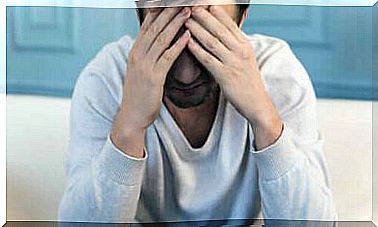The Fear Of Shine That Holds Us Back

One of the great paradoxes of the human being is that of wanting to be special while at the same time afraid to shine. Who doesn’t want to be recognized and admired? We all need others to notice our virtues. And it is even better if, in addition to seeing them, they stand out.
However, many feel intimidated by the idea of standing out. Almost all of them, actually. And the reason is that to stand out you also have to get away from the group a little, not stay in the flock. In other words, one must place oneself in the register of the “different”. This is where this fear sometimes comes from.
The first thing to do is make a distinction between being approved and standing out. When you gain approval, you receive a pat on the back or an exaltation that you have been accepted and appreciated by a group. On the other hand, by standing out, by shining with your own light, you don’t necessarily get acceptance. Indeed, it is also possible that rejection is generated.
Sometimes the question isn’t that extreme. The fear of glowing can come from a hurt self-esteem. Under these circumstances, the recognition of others is frightening. You want to remain anonymous, even if you secretly have wants and needs.
The fear of shine and the sense of guilt
Someone’s success often makes others feel bad. It is inevitable. It is part of the package. An exceptional triumph necessarily has an impact on others and many will even feel inferior, even if that is not the intention. An insecure person sees the success of others as a threat. It is as if this emphasizes the fact that she was not the one who achieved this success.

We already know this well on an intuitive level. We believe that success breeds latent or explicit hostility. The fear of these reactions affects the fear of glowing. You don’t want to get in tension with others. Especially if they are people dear to us.
There are unconscious mechanisms that often lead to punishing those who stand out, those who have more power or brightness.
Family and the fear of being shining
The family is the first nucleus of socialization and often the fear of shine is rooted in it. It mainly occurs when the family is dysfunctional or lack of self-esteem, envy or feelings of inferiority dominate. If one of the members of such a family achieves success, it is almost seen as a betrayal.
Of course, this does not happen in the realm of the conscious. It shines through behaviors such as prohibiting bragging about results or forcing him to put his talents at the service of others, precisely because this someone “does it better”. It introduces the idea that standing out has negative consequences.
Parents instill implicit obligations on their children. One of them, very frequent, is to suffer for their suffering. Those with parents of this type will be terribly sick when they reach a result that makes them very happy. How to feel good knowing that they are suffering? Hence the fear of shining
When you stand out, you expose yourself
To what has been said above, it is possible to add the cases in which one is afraid to shine because one feels a great fear of being different. There is a fear of being identified, questioned or rejected. To stand out also means to expose oneself. And exposing oneself means facing the opinion of others, which is not always constructive towards the new or the different.

Usually this occurs because too much value is given to the opinion of others. We place much more emphasis on the attributes that others approve of, rather than on the characteristics that make us unique. That is why, implicitly, we shape goals that satisfy general opinion and not necessarily make us happier.
The fear of shining always involves a certain sense of guilt and the fear of being rejected. Many people refuse to stand out just to preserve the affection of their family, friends, or partner. In order not to “betray” others, they end up betraying themselves. Adding joint unhappiness and limiting their own development. It’s wrong. When we are better, we can also help others to be better.









